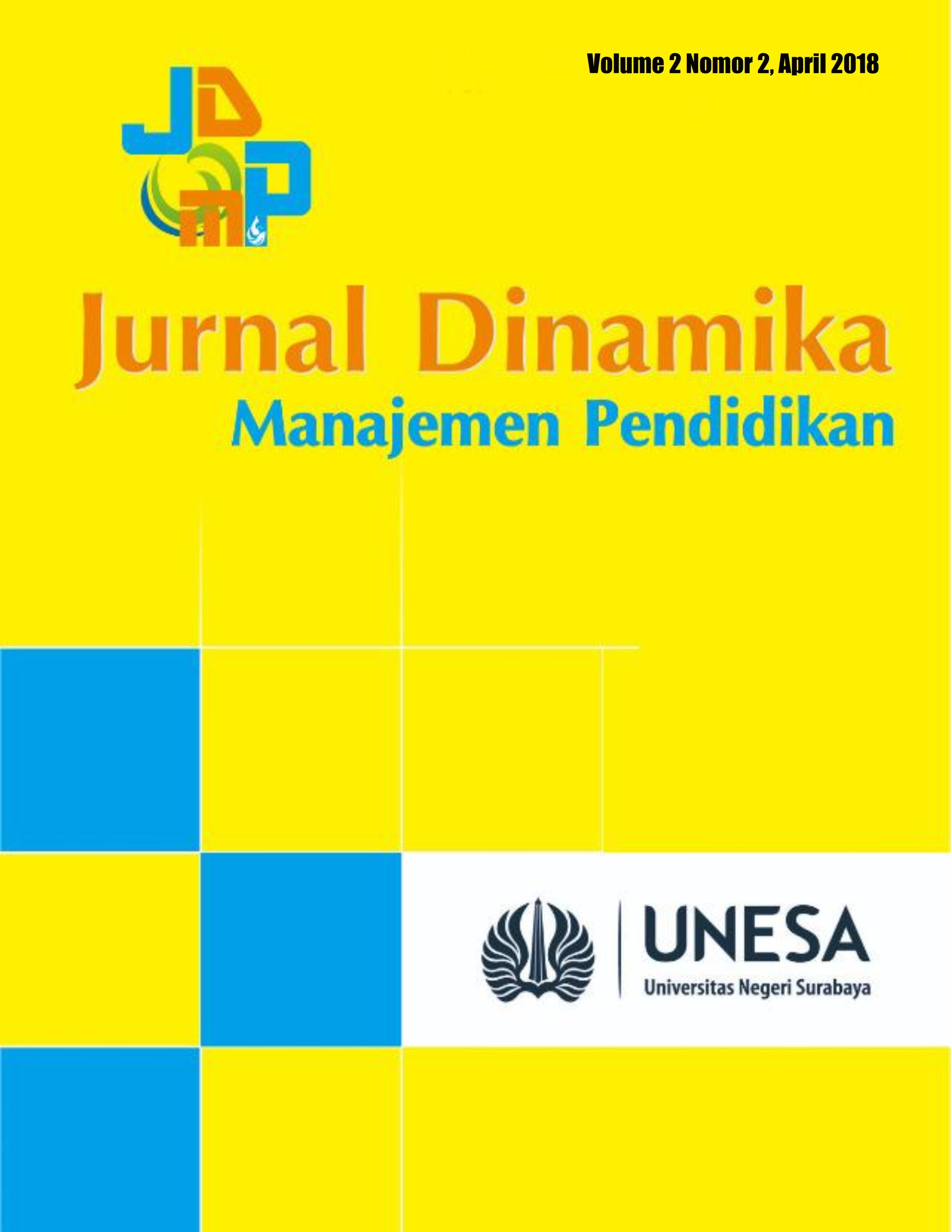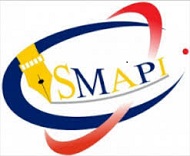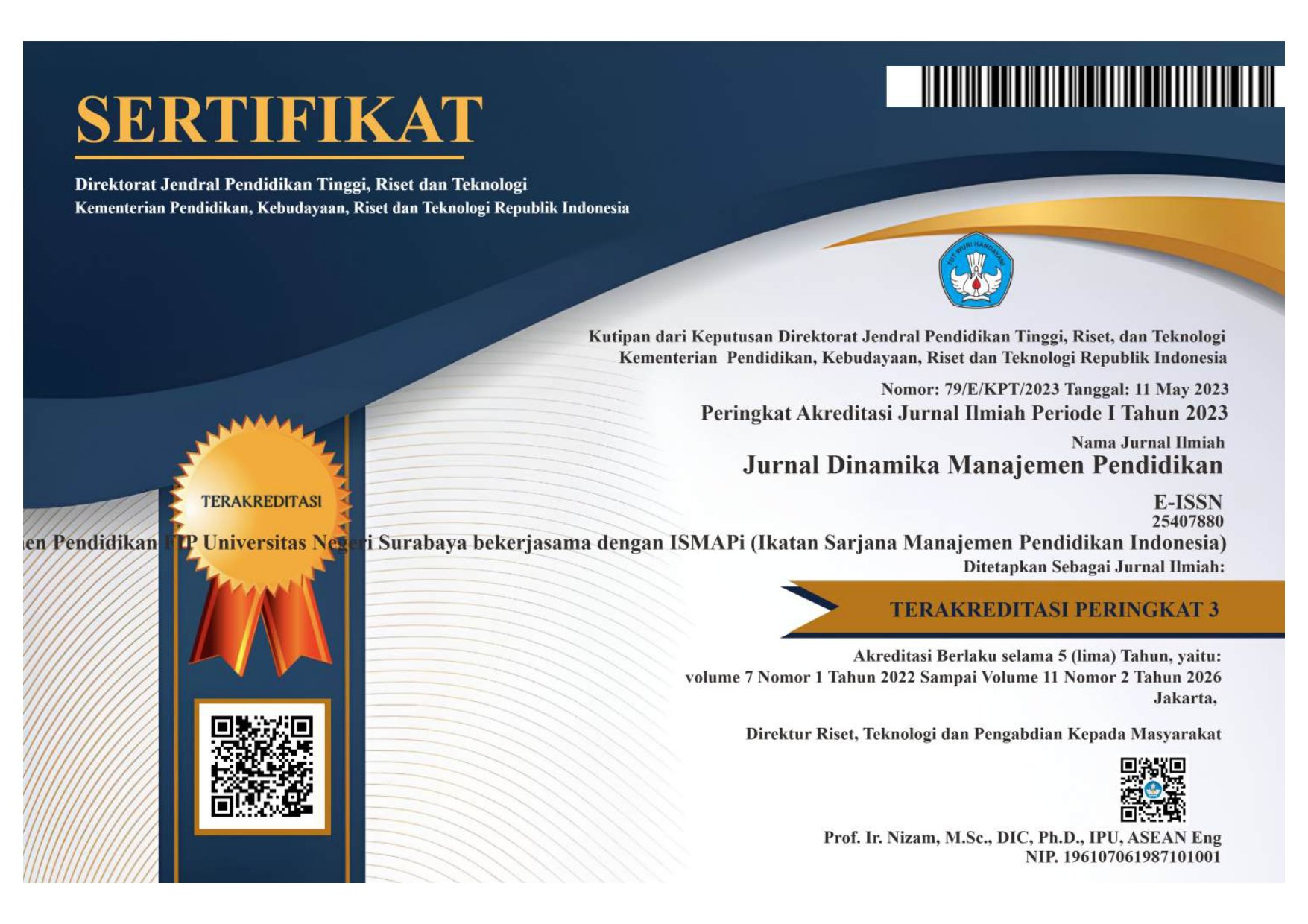Upaya Meningkatkan Kepercayaan Pada Organisasi Melalui Perbaikan Perilaku Pemimpin dan Keadilan Organisasi
DOI:
https://doi.org/10.26740/jdmp.v2n2.p165-174Keywords:
organizational trust, organizational justice, leadership behaviorAbstract
Organizational trust is essential so that members of the organization can continue to contribute to the progress of the organization. The purpose of this research is to find out how far the variables of leadership behavior and organizational justice on improving organizational trust. The research method used is associative quantitative causal method, and the testing hypothesis research using path analysis technique. The population in this study is 707 permanent lecturers who have the National Lecturer Number (NIDN). The sample is 130 respondents. The instrument test was conducted to 30 respondents outside the sample. The findings of this research indicate that the higher the leadership behavior in directing subordinates, providing support to subordinates; increase member participation in achieving organizational goals, and rewarding the achievers, the higher the trust in the organization. Other findings show that the higher the organization's justice the higher the trust in the organization.
References
AL-Abrrow, Hadi A., Mohammad Shaker Ardakanib, Alireza haroonic and Hamidreza Moghaddam pourd The Relationship between Organizational Trust and Organizational Justice Components and Their Role in Job Involvement in Education, IJOMA International Journal of Management Academy, 2013.
Chan, W., Kim Renee Mauborgne. Blue Ocean strategy. Boston: Harvard Business School Press, 2005
Colquit, Jason A., Jeffrey A. Lepine, Michael J. Wesson. Organizational Behavior. Improving Performance and Commitment in the Workplace. NewYork: McGraw-Hill, 2009.
Daft, Richard L.. The Leadership Experience. Singapore: Thomson South-Western, 2008.
George, Jennifer M., Gareth R. Jones. Understanding and Managing Organizatioanl Behavior . Boston: Printice Hall, 2012.
Gibson, James L., John M.Ivancevich, James H. Donnelly,Jr, Robertk Konopaske. Organizations, Behavior, Sructure and Proceses Boston: McGraw-Hill, 20060.
Goetsch, David L., Stanley Davis. Quality Management for Organizational Excellence, Introduction to Total Quality Management. Boston: Pearson, 2013.
Griffin, Rcky W., Gregory Moorhead. Organizational Behavior, Managing People and Organizatios. Boston: Houghton Mifflin Company, 2007
Hidayat Rais. Perilaku Etis Dosen Dalam Perspektif Efikasi Diri, Kepemimpinan, Dan Komunikasi Interpersonal. PEDAGONAL, Jurnal Ilmiah Pendidikan. VOL 1 NO 1, 2017.
Hughes, Richard L., Robert C. Ginnett, Gordon J. Curphy. Leadership, Enhancing the Lesson of Experience. Boston: McGraw-Hill, 2009.
John W. Slocum dan Don Hellriegel. Fundamental of Organizational Behavior. Ohio: Thomson South-Westen, 2007.
Lussier, Robert N. Human Relations in Organization. Boston: McGraw-Hill, 2008.
Luthans, Fred. Orgnizational Behavior. New York: McGraw-Hill, 2008.
McShane, Steven L. and Mary Ann Von Glinow. Organizational Behavior, Emerging Knowledge and Practice for Real World. New York: McGraw-Hill Irwin, 2010.
Patras, Yuyun Elizabeth. Pengaruh Perilaku Kepemimpinan, Keadilan Organisasi Dan Keterlibatan Kerja Terhadap Organizational Citizenzhip Behavior Dosen. PEDAGONAL. Jurnal Ilmiah Pendidikan. VOL 1 NO 1 2017.
Pinder, Craig C., Work Motivation In Organizational Behavior. New York: Psycology Press, 2008.
Robbins, Stephen P. dan Timothy A Judge, Organizational Behavior Fifteenth Edition. New Jersey: Prentice Hall, 2013.
Schermerhorn, John R., James G. Hunt, Ricard N. Osborn, Mary Uhl-Bien. Organizational Behavior. Danvers USA: John Wiley & Sons, Inc, 2010.
Yukl, Gary. Leadership in Organization. New York: Pearson Educational Int., 2008.
Downloads
Published
How to Cite
Issue
Section
License
Copyright Notice
The copyright of the received article once accepted for publication shall be assigned to the journal as the publisher of the journal. The intended copyright includes the right to publish the article in various forms (including reprints). The journal maintains the publishing rights to the published articles.
The publisher publish and distribute the Article with the copyright notice to the JDMP with the article license CC-BY-SA 4.0.
 Abstract views: 659
,
Abstract views: 659
, PDF Downloads: 6487
PDF Downloads: 6487



















.png)
1.png)







.png)
